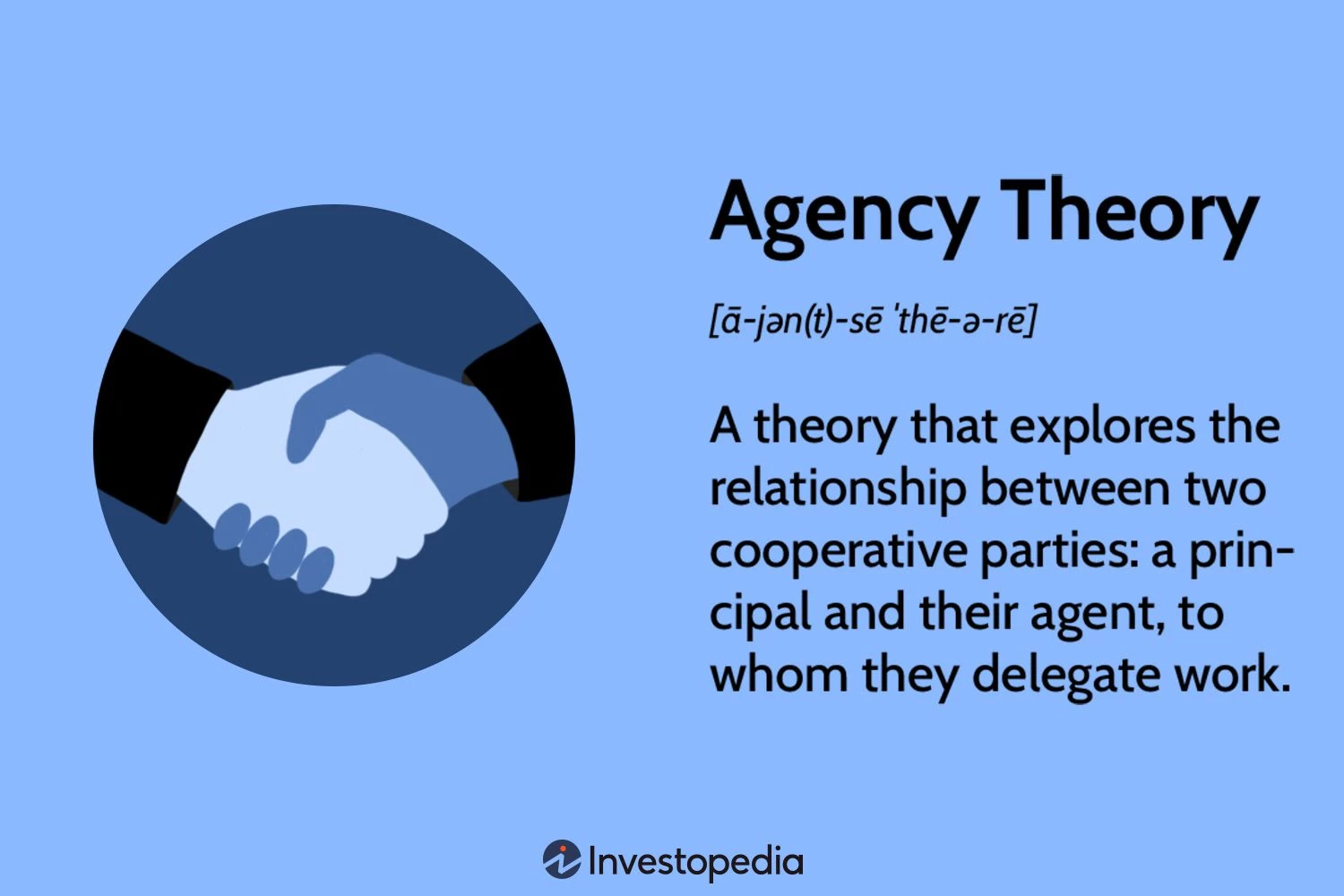What Is Agency Theory?
Agency theory is a fundamental concept used to comprehend and address issues in the dynamic between business principals and their agents. This theory is commonly applied to the relationship between shareholders, acting as principals, and company executives, functioning as agents.
Key Takeaways:
- Agency theory aims to elucidate and resolve conflicts arising from differing priorities between principals and their agents.
- Principals depend on agents to conduct specific transactions, leading to discrepancies in priorities and methodologies.
- The disparity in interests between agents and principals is termed the principal-agent problem.
- The process of reconciling differing expectations is referred to as “reducing agency loss.”
- Performance-based compensation is one strategy used to strike a balance between principal and agent.
- Common examples of principal-agent relationships include shareholders and management, financial planners and clients, and lessees and lessors.
Understanding Agency Theory
In broad terms, an agency refers to any association between two parties where one, the agent, represents the other, the principal, in day-to-day dealings. The principal or principals engage the agent to perform services on their behalf.
Principals delegate decision-making authority to agents. As many financial decisions impacting the principal are made by the agent, disagreements and varying priorities and interests can emerge. Agency theory posits that the interests of a principal and agent may not always align, a phenomenon commonly known as the principal-agent problem.
An agent utilizes the resources of a principal by making decisions on their behalf. While the principal entrusts capital, they have minimal day-to-day involvement. The agent assumes the role of decision-maker but bears minimal risk as any losses are borne by the principal.
Agents such as financial planners and portfolio managers are entrusted with managing assets on behalf of principals. Similarly, a lessee may be responsible for safeguarding assets not owned by them. However, the lessee might have less interest in protecting the assets compared to the actual owners.
Areas of Dispute in Agency Theory
Agency theory addresses disputes primarily in two key areas: differences in goals and risk aversion.
For instance, company executives, focusing on short-term profitability and personal compensation, may aim to venture into new high-risk markets. However, this strategy could pose undue risk to shareholders, primarily concerned with long-term earnings growth and share price appreciation.
Another critical issue tackled by agency theory involves conflicting risk tolerance levels between principals and agents. Shareholders in a bank might object to management’s lenient loan approval standards, increasing the risk of defaults.
Reducing Agency Loss
Proponents of agency theory recommend various strategies to resolve disputes between agents and principals, coined as “reducing agency loss.” This loss represents the amount disputed as lost due to agents acting against the principal’s interests.
One prominent approach is offering incentives to corporate managers to enhance the profits of principals. Stock options for executives originate from this theory, aiming to optimize the principal-agent relationship. Other methods include linking executive compensation partly to shareholder returns as part of corporate governance.
These practices have raised concerns that short-term profit gains and executive compensations might jeopardize long-term company growth. An example is manipulating budget estimates to meet performance targets. To address these concerns, new compensation schemes delay part of executive pay, tying it to long-term goals.
Similar solutions are applied in other agency relationships, including performance-based compensation, requiring a bond for result assurance, and ultimately, termination of the agent if necessary.
Agency theory addresses conflicts primarily in two critical areas: differences in goals and risk aversion. Management may seek short-term growth through ventures in new markets, while risk-averse shareholders prioritize long-term earnings and share price appreciation. Similarly, conflicting risk tolerances between principals and agents can lead to disputes, such as disagreements over loan approval standards.
The principal-agent problem delineates a conflict of interests between a representative and the entity authorizing their actions. This conflict can arise in various scenarios where control over an asset is entrusted to another party by the asset owner. For instance, a homebuyer may suspect a realtor prioritizes commissions over their best interests.
Agency loss embodies the disputed amount lost due to agents’ actions contrary to the principal’s interests. To mitigate conflicts, offering incentives to corporate managers to maximize principal profits and aligning executive compensation with shareholder returns are effective strategies originating from agency theory.
